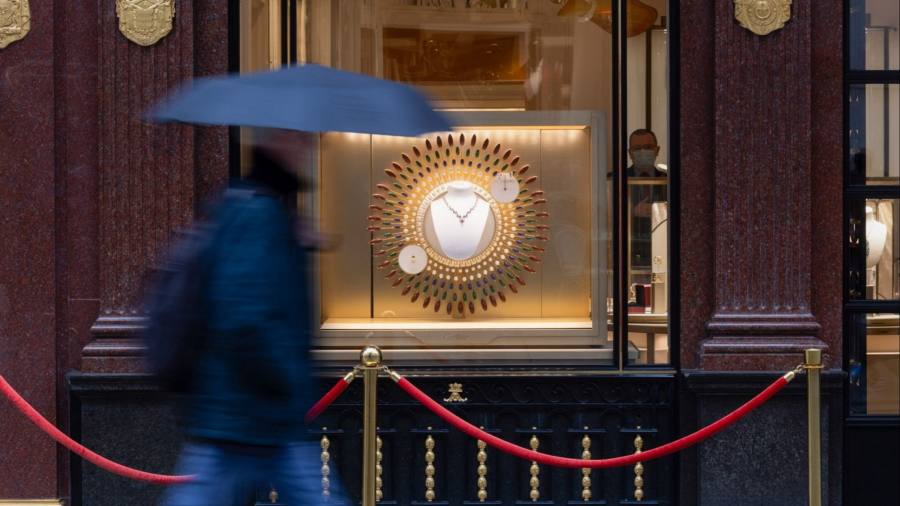Richemont has sought to quash speculation over takeover approaches after jewellery sales and a rebound in China drove the Swiss luxury group to record earnings.
Revenues for the owner of Cartier and Van Cleef & Arpels climbed 14 per cent at constant exchange rates to hit an all-time high of nearly €20bn for the year ended March 31. Operating profits came to a record €5bn, up by a third from the previous 12 months and ahead of expectations, while net cash rose €1.3bn to €6.5bn.
Richemont chair Johann Rupert, who controls the Swiss group, reiterated that the company was not for sale, after a Swiss news outlet reported “whispers” that France’s LVMH had set its sights on acquiring it. Richemont had also turned down a deal with Kering proposed by bankers two years ago, Rupert said.
“We’re in constant dialogue and we respect each other’s independence,” he said of LVMH.
The Swiss company joins other groups in the luxury sector, such as LVMH and Hermès, in reporting bullish earnings on the back of sales picking up in Asia, in particular China. Gucci owner Kering, however, has lagged behind.
Defying geopolitical ructions and rising inflation, the global luxury sector has boomed in recent years, the strength of its recovery after a 2020 pandemic contraction surprised industry experts with double-digit growth in 2021 and again last year.
The fourth quarter revealed a “significant” sales increase as the Asia-Pacific region recovered following China’s removal of Covid-19 travel restrictions, Richemont said.
But Rupert cautioned: “Economic volatility and political uncertainty look set to remain features of the trading environment. The group will therefore seek to maintain the necessary agility to manage fluctuating levels of demand.”
While Chinese tourism was beginning to pick up again, large groups have yet to return as flights remain expensive. Most analysts expect international Chinese tourism, a key driver of global luxury sales, to pick up more significantly from the second half of this year.
Demand has been slowing in the US since November, reflecting analysts’ expectations for a slowdown there and trends reported by other luxury companies in the sector’s biggest market, Rupert also noted.
Richemont reported a €3.6bn loss from discontinued operations, largely due to a €3.4bn non-cash writedown on ecommerce platform Yoox Net-a-Porter. The company is in the process of separating the ecommerce business from its core operations after announcing a plan to sell a majority stake in the unprofitable platform to an Emirati investor and online rival Farfetch last year. The deal is currently being examined by regulators.
“The polarisation between strong brands with iconic pieces and weaker ones continued unabated, and accelerated in recent months due to high inflation,” wrote Jean-Philippe Bertschy at Vontobel. “Richemont is very well positioned with Cartier, Van Cleef & Arpels or Vacheron Constantin.”
The Swiss group will offer a special dividend of SFr1 a share on top of an increased ordinary payout of SFr2.50. It also plans to buy back as many as 10mn of its A shares, or 1.7 per cent of its equity.
Shares rose more than 5 per cent on Friday after the earnings release. They have increased 31 per cent this year.
Read the full article here




